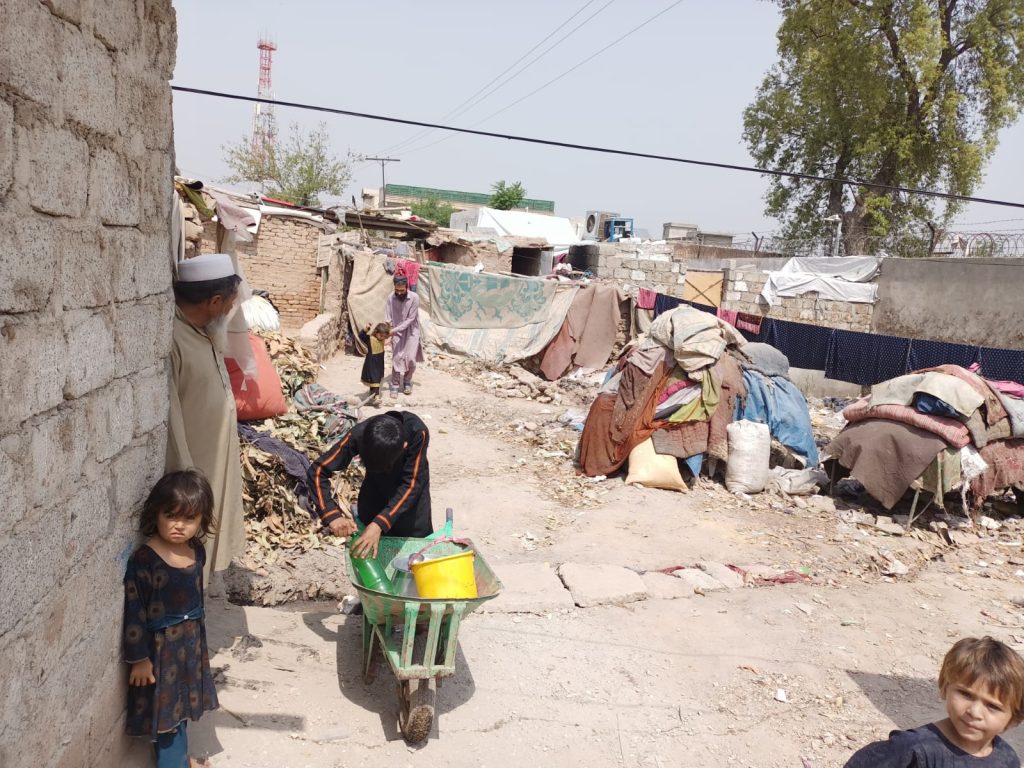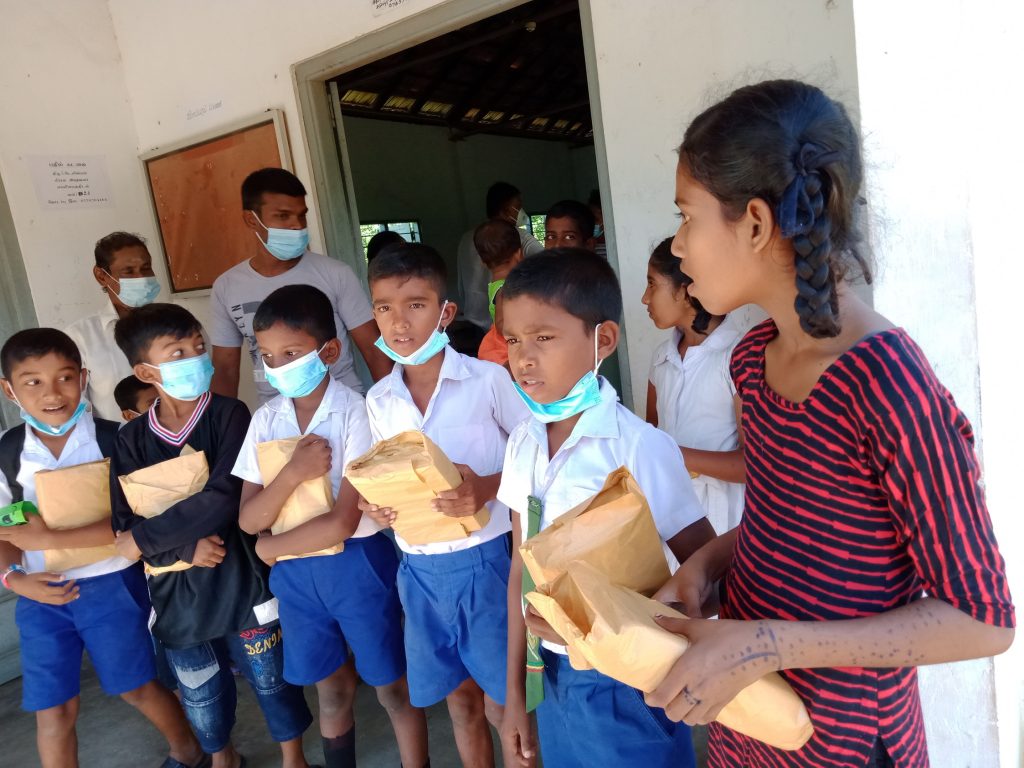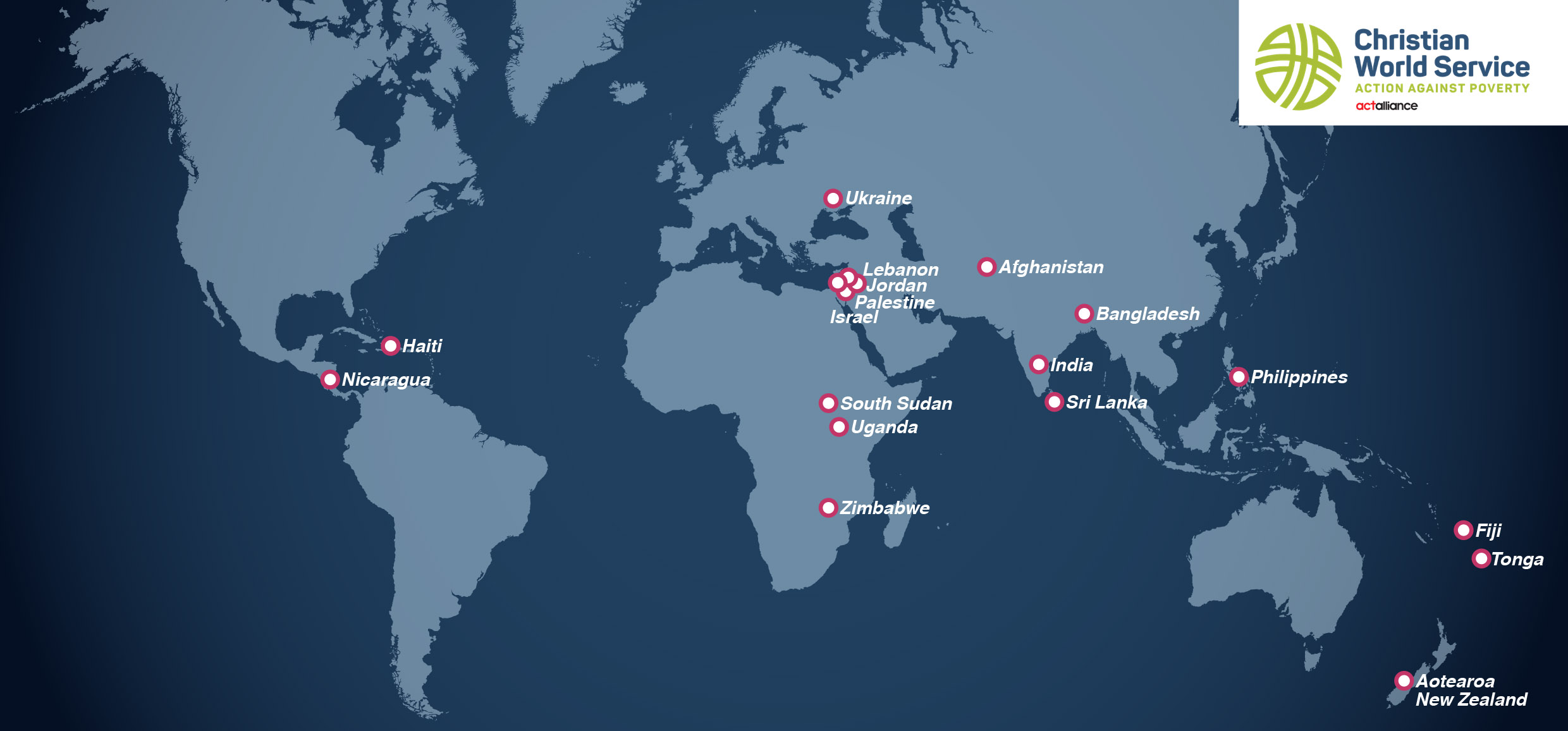April 2022
Thank you for supporting communities to make the changes they want and need. Over the past year families have eaten foods grown in their own gardens, started small businesses and sent their children to school because you invested in the training and support they needed. We know we can count on your regular donations to assist these programmes that help to bring water, food and justice to many.
The war in Ukraine is the latest in a series of disasters needing a global response. We have been thankful for donations to assist in Ukraine as well as Afghanistan and after the eruption and tsunami response in Tonga.
We are facing the challenge of Covid along with the rest of the world. Climate change is contributing to life-destroying droughts and floods. All have had an impact on the livelihoods and economic security of so many people.
 In the midst of all this, there is hope – the hope spoken of in Isaiah 40: 31, ‘but those who hope in the LORD will renew their strength. They will soar on wings like eagles; they will run and not grow weary, they will walk and not be faint.’
In the midst of all this, there is hope – the hope spoken of in Isaiah 40: 31, ‘but those who hope in the LORD will renew their strength. They will soar on wings like eagles; they will run and not grow weary, they will walk and not be faint.’
At CWS, we find our hope in working together with our partners, our donors and our partner churches to share life. It is something we have been doing for more than 75 years.
Thank you for being a Partner for Life, for the practical and prayerful ways you share our vision of a world free of poverty and injustice.
Murray Overton
National Director
Our Featured Partners

Elly and her grandaughter sell the banana fritters and other food they have made around the barangay each day. Photo: Developers
Home-grown food sustains Filipino Families during Pandemic
7,480 trees, vegetables and root crops planted on Tabon Island supporting 100 households.
1,737 households took part in the Planting Drives. Last year they grew 75,240 kilograms of cassava.
40 people benefited from a 3 month no-interest Revolving Livelihood Loan. Most invested in food production. One woman started a pottery business.
Innovation is a way of life in the Philippines. The people who survived Typhoon Haiyan in 2013 are devising new methods of gardening to cope with rising sea levels and salty water. Vegetables are flourishing in coconut pots hanging from bamboo poles and in salt-free soil, hauled by hand from further inland. Last year the Tabon Island residents were the latest group to join the Planting Drives organised by Developers Foundation in the north of Aklan province.
Elendra (pictured with her granddaughter) took part in last year’s Planting Drive. She is already seeing the benefits of this strategy to restore and improve livelihoods, especially after last year’s drought.
She used to buy the raw materials to turn into banana fritters and other foods which she sold door to door, but she could not make enough income to care for her family. The free seedlings and tubers available through the Planting Drive made the answer obvious. She is growing beans, okra, sweet potatoes, cassava, banana, water spinach and more in her small garden. As Covid spread in the Philippines and lockdowns were tightened, she could keep her small business going.
“My garden has helped me and my daughter because it provides us with food and additional income. I continue to sell my goods within barangay Taba,” she says.
The Planting Drives have now reached ten communities, helping families sustain themselves through the pandemic. The disaster preparedness and livelihood training organised by Developers has strengthened communities and protected the people from hunger.

Families have made the dangerous trek out of Afghanistan. Cash transfers help some of the most vulnerable families in Pakistan. Photo: CWS/A
Lifesaving Aid to Afghanistan
300 families from Afghanistan received cash transfers.
Close to 120,000 Afghan families have made the difficult journey through snow-covered mountains to reach Pakistan this year and have registered with the United Nations. Most are reluctant to tell their stories for fear of what might happen to their families.
Households headed by women or with differently-abled members are particularly vulnerable as they have limited mobility and are unlikely to be able to earn income themselves. Instead their children and teenagers may have to work. Community World Service Asia has made these vulnerable families the priority in Afghanistan and Pakistan.
Community World Service Asia gives a cash grant of 15,000 rupees (approximately NZ$120) each month for three months to these families. The amount is enough to buy food for a family for a month. Cash transfers are efficient and allow each family to spend the money on their most urgent needs.

Children are pleased to receive the materials they need for school in Mannar and Kurunegala. Photo: Devasarana
Growing Peace in Sri Lanka
48 families received new fruit trees planted in Mannar.
340 children in Mannar and Kurunagala received school supplies.
In Sri Lanka, people are on the streets. The country is facing a severe crisis. Hunger is spreading. Medicines are in short supply and the future is uncertain.
Our partners work with some of the most vulnerable people to improve their livelihoods, uphold fundamental rights and build peace and friendships across communities. Acutely aware of the nation’s politics and economy, they are intent on addressing the deep rifts in the country.
Displaced Tamil and Muslim families returned to their lands a few years after the civil war ended in 2009. On the island of Mannar, the people found that the land that had once sustained them was now ruined. The Sri Lankan army had planted gorse to feed the goats that they relied on for food, destroying the rice fields. The returning families built small homes and began to clear the land. It was hard work and there was little outside help.
On the mainland Devasarana Development Centre was founded in 1957. The Centre focused on making spaces for dialogue among people of different ethnicity, religion or ideology in Kurunegala where it is based. Residents grew their own food and built links with the surrounding farmers as well as with university students, trade unions and the ecumenical/interfaith movement.
Devasarana hosted discussions and meetings in an effort to stop the fighting and discrimination. The Centre runs children’s clubs, a library and training programme for neighbouring villages. The community assisted victims of the South Asian tsunami.
During the war Devasarana met displaced people from the north who were sheltering in camps around Kurunegala. They built lasting relationships. When the people returned, a group went to Mannar to talk peace.
Life has been very hard for them. Most had lost family members, friends and neigbours and there was little support available.
In 2018, the villagers asked them to assist to build new livelihoods and train them in agro-ecological farming and conservation. Groups from Kurunegala visited each year, taking what they could – plants, chickens and tools – as part of the reconciliation process. In 2020 Devasarana took 50 packs of dry rations, funded from CWS’s Coronavirus Appeal.
Last year Devasarana made the trip north to run two one-day workshops on digital literacy for young people, and other sessions on protection from disease and home gardening. The team took jackfruit, breadfruit, cashews plants and lime trees for the people, strengthening relationships across one of Sri Lanka’s human faultlines.
Every day, through your monthly donation, you get to be a partner with the world’s most vulnerable people as they work to overcome incredible hardships. You help them meet their most vital needs for water, food and justice, and build better lives for themselves.
Thank you for being a CWS Partner for Life.
Download to read as a PDF.



